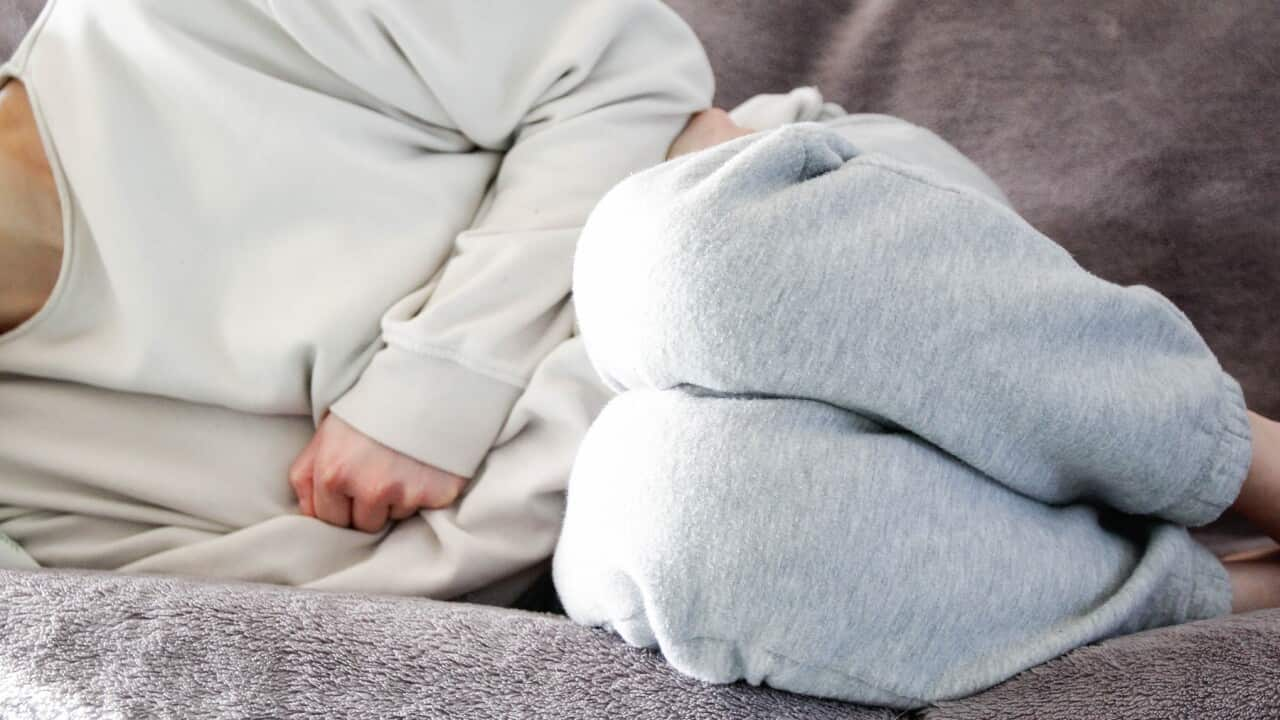TRANSCRIPT
"Come on Vito, come on Vito, there you go, good boy."
A calendar that pairs men from the world of bodybuilding with cute pups to raise funds for animal rescue, is celebrating its tenth anniversary with the release of its 2024 edition.
The photos in "Hunks and Hounds" feature muscled men posing with delightful rescue dogs.
Behind the making of the calendar is celebrity photographer and dog rescue advocate Mike Ruiz, in collaboration with Louie's Legacy Animal Rescue founder, Emily Gear.
"We had a volunteer many years ago who knew Mike and she brought us together with him and he had the idea that he wanted to start doing these fundraising calendars for various rescues, to really bring attention to the plight of animals in rescue, but also in shelters in this country."
Ms Gear says animal shelters all over America are at capacity.
It's a similar story in Australia with people surrendering their pets at an increasing rate.
Many animal shelters across the country are at capacity with cost-of-living pressures and people returning to work after the pandemic to blame for people surrendering their pets.
Many animals are on surrender waitlists.
Ms Gear hopes the calendars will encourage people to adopt animals from shelters, where many are euthanised.
"Every county, every city - almost everywhere in this country - has an animal shelter full of animals. And, if you don't realise that, then you don't know that they're waiting there for homes and some of them suffer because of it."
Australia faces similar issues to the United States.
All states and territories in Australia are reporting increases.
Vet Practice is reporting that RSPCA Victoria has had a 340 per cent increase in calls about surrendering a pet over the last three years and their animal shelters are currently operating at or near capacity.
In New South Wales the Animal Welfare League has an eight-month waiting list for surrendering pets and a jump of about 34 per cent over the last few years of animals coming into the league for care.
For Mike Ruiz photography is the right platform to fight for animal welfare.
"As a young person, like, I always felt like I didn't have a voice and I wasn't seen. So I always told myself, like, if ever I was in a position and had any kind of visibility or platform at all, that I would use it for the greater good. And as soon as I became, you know, successful as a photographer, I started advocating for different organisations. And animal advocacy was really important to me because of my connection that I had with my dog and and other sentient beings. I just felt like there was such a need to advocate for the voiceless. And that's kind of how it all started with the with the calendar and the multitude of other things that I do to benefit animal welfare."
Producing the calendar has led to the saving of thousands of dogs.
"It's been ten years now and we're on our 10th anniversary. And I'm just really proud of it, because we we've been able to save you know, thousands of dogs literally from, from producing this calendar. So, you know, it's become like a really important project for me every year. It is probably the most gratifying thing that I do every year."
Mr Ruiz says the dogs used in the calendar come from shelters and from those engaged in animal welfare.
"This year we, we used 14 male models and probably the same amount of dogs. Often we tend to get more dogs for the shoot just because some don't like to be photographed. And, you know, we certainly don't want to stress a dog out. You know, they've been through enough already. So we have as many dogs come to the shoot as possible and they usually are brought by fosters or people who've adopted. They're alumnae of the rescue that we're benefiting."
Ms Gear, like Mr Ruiz, hopes the 2024 calendar will encourage people to adopt them.
"People are not adopting any more right now. They are adopting some, I shouldn't say not adopting. They're adopting some, but they're not adopting at the rate that they were adopting before COVID. And so animals are sitting in shelters for much longer and longer lengths of stay, which is the time periods they are there. And, and they're developing all kinds of behavior issues and things like that, which makes them less adoptable, which means more and more animals keep building up at the shelter - and it's heartbreaking."
Debby DeLuca, of Staten Island, is a proud foster-turned-adopter of this year's Mr November - a Boston Terrier named Vito.
"Vito is a superstar. He's Mister November. He was held by a muscular guy, and Vito was also muscular. He worked out for the calendar."
For Ms Deluca, fostering animals grants them a new lease on life.
"I believe that fostering is a better situation than having them in a shelter. They're learning to be with families. They're learning to fit in with either other pets or children. They meet new people. They're getting new experiences every day. So it's easier to get them into a home."
Mr Ruiz would like to see less people buying animals from pet stores and breeders, instead turning to adoption.
"My biggest goal is to advocate towards, like, people adopting versus buying from a breeder. You know, commoditising sentient beings is, you know, never a good idea or ethical in my mind."













